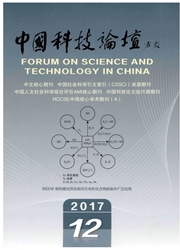

 中文摘要:
中文摘要:
创新活动的高调整成本使创新活动一旦中断会给企业带来巨大的损失,保持企业创新持续投资对企业有重要的意义。然而,严重的信息不对称问题导致创新投资面临外部融资约束,制约了企业的创新可持续性。基于此,本文从平滑机制的研究视角,探讨了政府补助对创新投资波动的平滑作用,并在此基础上进一步分析了企业内部股权集中度、产权性质和外部货币政策的情境效应。基于托宾Q投资模型,以2007-2014年A股制造业企业为研究对象的面板数据实证结果发现:企业创新持续投资活动存在外部融资约束,政府补助有助于缓解外部融资约束从而平滑创新投资波动,推动创新可持续性;而企业股权集中度会弱化政府补助对创新可持续性的正向影响;并且在非民营企业中和货币政策紧缩时期,股权集中度减弱政府补助平滑创新投资波动的作用更显著。本文在论证政府资金满足企业创新融资需求的同时,也为我国现阶段建设创新型国家提供一定的参考。
 英文摘要:
英文摘要:
Because of high adjustment costs, the sudden interruption of innovation activities will bring huge losses to enterprises. Thus, maintaining continuity of enterprise innovation is of great significance to companies. However, serious information asymmetry leads to external financing constraints at innovation investment, which restricts the persistence of firm innovation. Therefore, based on the perspective of smoothing mechanism, this paper discusses the smoothing effect of government subsidies on Innovation investment fluctuation and furtherly discusses the context effects of internal ownership intensity, the ownership as well as eternal monetary policy. According to Tobin~s Q investment model, this paper performs an emperical test on panel data of A share of all manufacturing between 2007-2014, the result shows that: the enterprises who develop innovative sustainable investment activities suffer serious external financing constraints, government subsidies can ease external financing constraints to smooth the volatility of innovation investment and promote the Persistence of Firm Innovation;What' s more, ownship intensity can weaken the positive relationship between government subsidies and the persistence of firm innovation ; But in the private enterprises and during monetary policy contraction phase, ownship intensity furtherly weaken the smoothing effect of government subsidies on innovation investment fluctuation. The paper not only proves that govemment subsidies can satisfy the demands of innovation financing, but also provides certain reference for constructing a creative country at the present stage in China.
 同期刊论文项目
同期刊论文项目
 同项目期刊论文
同项目期刊论文
 期刊信息
期刊信息
